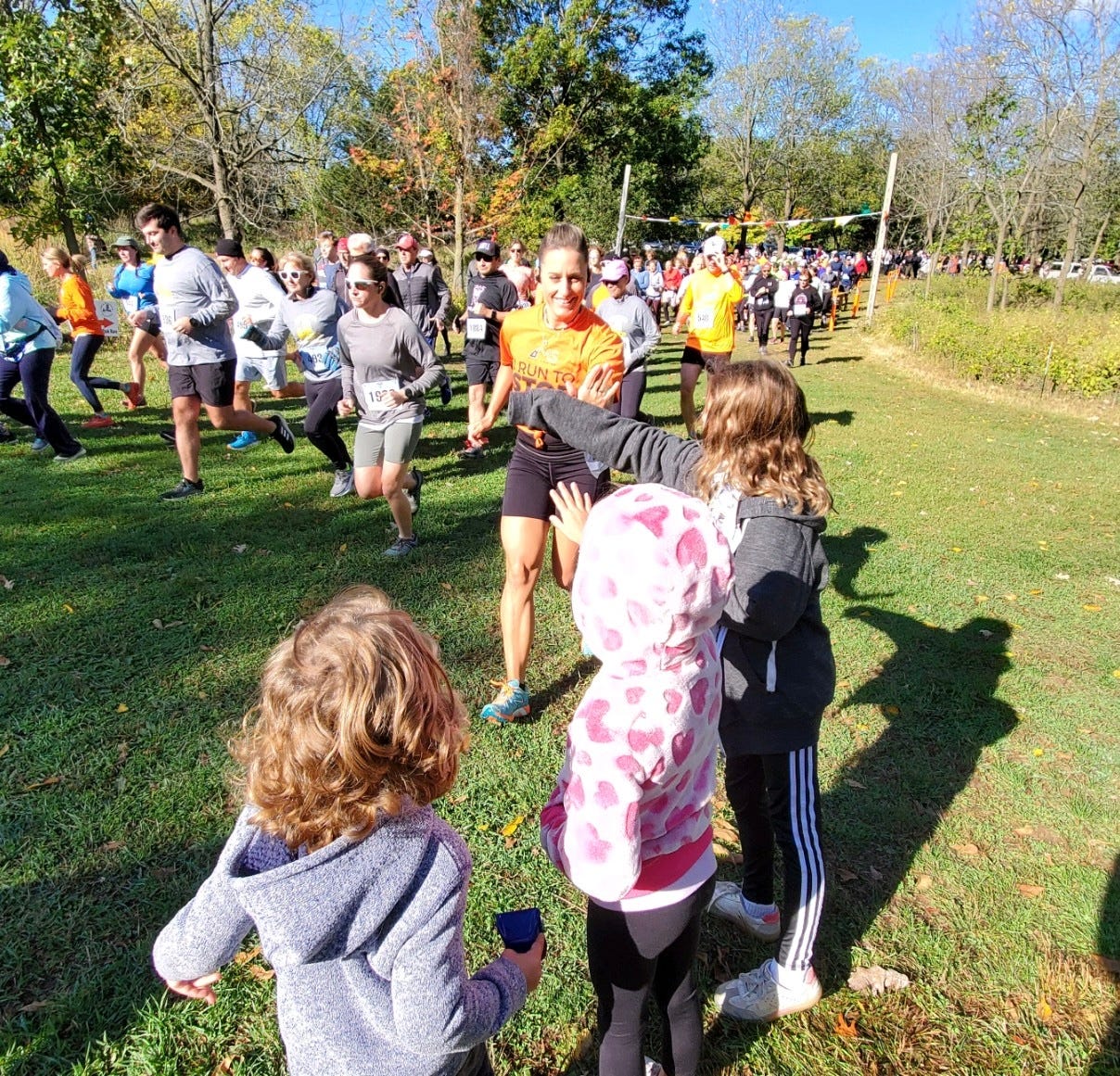Swimming with the Current
Challenges, changes and transitions.
I slept on a velour futon couch for six months. The sofa was located inside a 1994 Ford A-class motorhome. You know the kind—one of those bus type vehicles with a massive picture window at the front that you see driving down the interstate with a pair of retired folk propped up at the glass. This is the kind of vehicle I used to support my first relay team as I took them across America for my nonprofit, two years after I completed my own solo crossing. The motorhome was the same one I traveled in for my run, except this time I was the individual crew person caring for the runners on the team, one at a time, in their own week-long undertaking of consecutive marathons. I ended up on the couch because there was only one bed in the vehicle—a queen sleeping space in the back where the bedroom was located. This is where the runner slept. The couch was in the living quarters and was quite literally the first thing you’d see upon entering the vehicle from the main side door. I was 27 years old, and I’m still amused by the fact that sixteen adults, many of whom were business professionals, were onboard with having a twenty-something sleeping on a couch care for them while they ran extreme distances across stretches of land in the middle of nowhere. Madness, I tell you.
I learned a lot about people that summer. I saw time and again the different ways that people act when they’re in pain, whether it be physical or in the mind, and the places we go for relief: distraction, blame, deflection. Instead of looking at and accepting what is, many of us will do anything to return to a place of comfort. Often, there’s nothing to be done by the outsider except to offer support: food, drink, a space to rest, and ultimately, encouragement towards the goal. But truly, the work is for the person in action.
Each year, I mentor a new group of employees in our Road Crew position to care for our runners in my organization's annual event. Part of the training is this—you will see people you’re caring for in a lot of pain, and your job is both simple and hard. You are to be a foundation of emotional steadiness while they ride the highs and lows of their journey. Offer them food, offer them hydration, offer them a place to sit for a moment. But you are not the source of their pain and you cannot carry it nor take it away for them. They may act out, they may even blame you. They may seem like they can’t do it. But they can. And it’s your job not to get sucked into their emotional vortex while you continue to fuel them so they can do the work.
I’m amazed at how applicable this lesson is to life. I can’t carry someone else's work for them and I am not the source of their pain. To try to take it away would disrupt the good that can come from challenges. It’s not my job to make you feel comfortable and it’s not your job to do the same for me. This is my work over here. That is your work over there. Offer water. Supply food. Suggest rest and give empathy. But simply put, people have to deal with their own shit or risk remaining unchanged.
Here’s the thing: we can do it. I can go through what I need to become better, and you certainly can do the same. We are all much more capable of navigating through the unknown and painful parts of life than we think we are. When I’m in the thick of challenges and change, I hate to hear that I am capable. I hate to know that I must carry what I’m going through to create a better version of myself. I can see it—the benefit, the overarching plan towards goodness, the need to grow, and still I can hate to do the work to get to the other side. Often, I know what I have to do long before I want to do it.
Change takes time and I believe we don’t give enough credit to transitions. It feels to me as if everything must be done immediately. But what in nature is so sudden except a storm? Transitions challenge us and change us, and we can’t really know how we’ll respond and what we’ll need until we’re in it. When you’re in it, you’re quite literally integrating tools that will help you manage something similar in the future. But in the present?…It’s hard. It can feel like you’re being tossed around a tempest vast ocean—soaked through, being turned inside out and upside down. It’s easy to want to claw at the nearest person for saving or get sucked into someone else’s grasping—to distract, to blame, to deflect from what needs to be done to become better—to accept what is and change. To do things like get extra sleep, continue a regular exercise routine, eat quality nutrition, integrate a breathing practice, spend targeted time with a mentor—you know, all the terribly boring things that we know we should do instead of cracking open another bottle of wine. But what if we didn’t grasp and distract ourselves? What if we did those terribly boring things? What if we stayed within the thrashing and learned how to swim with the current?


